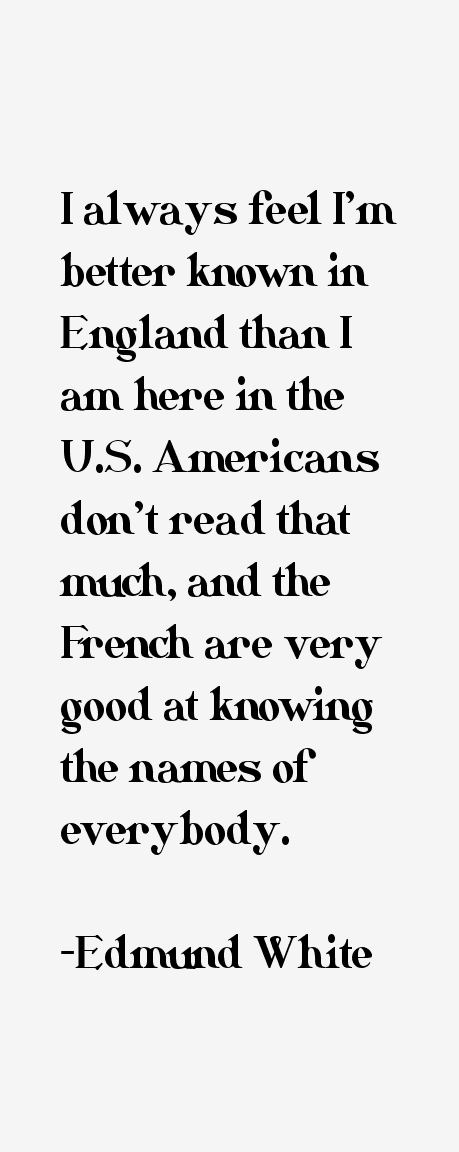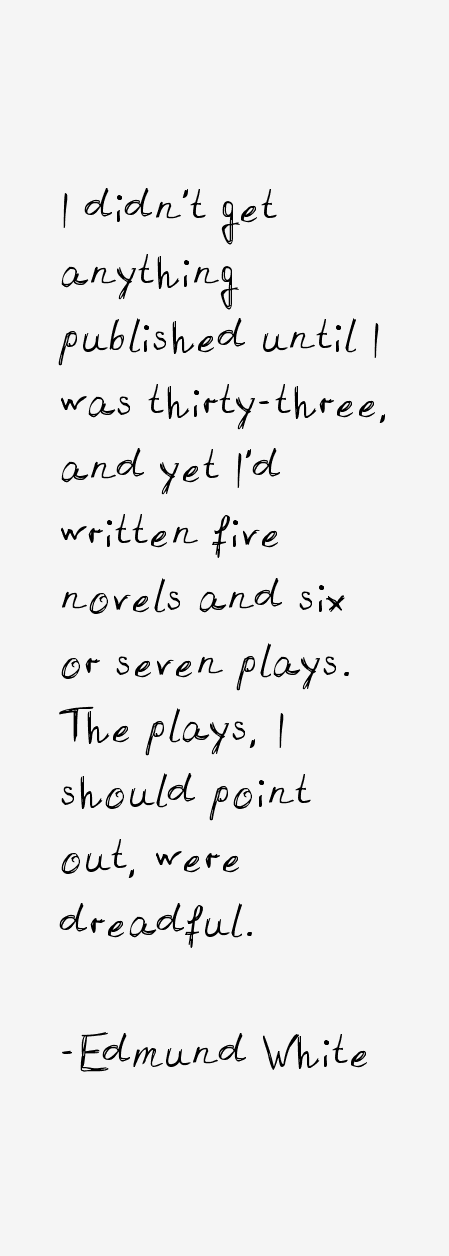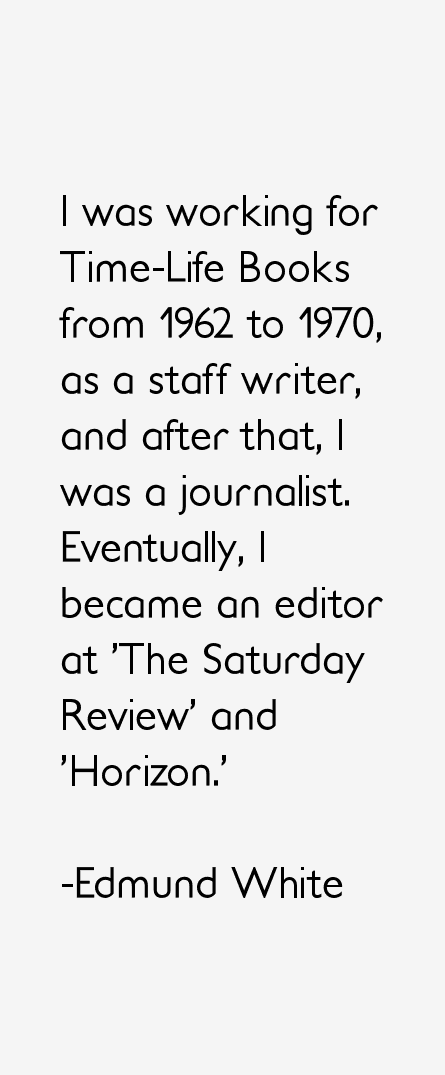Edmund White Quotes & Sayings (Page 8)
Edmund White quotes and sayings page 8 (novelist). Here's quote # 71 through 80 out of the 108 we have.
“From an early age, I had the idea that writing was truth-telling. It's on the record. Everybody can see it. Maybe it goes back to the sacred origins of literature - the holy book. There's nothing holy about it for me, but it should be serious, and it should be totally transparent.”

“I always feel I'm better known in England than I am here in the U.S. Americans don't read that much, and the French are very good at knowing the names of everybody.”
“I can remember in the late 1980s and early 1990s how many men with AIDS I saw everywhere in Key West. There were hospices and medical supply stores geared to people with AIDS. It seemed that every sick man who could afford it had headed for the warmth and the tranquillity and the gay-friendliness of the island.”
“I can think of no other writer who so thoroughly embodies the Jamesian spirit as Alison Lurie. Like him she can excavate all the possibilities of a theme. Like his, her books seem long, unbroken threads, seamless progressions of effects.”
“I changed my writing style deliberately. My first two novels were written in a very self-consciously literary way. After I embraced gay subject matter, which was then new, I didn't want to stand in its way. I wanted to make the style as transparent as possible so I could get on with it and tell the story, which was inherently interesting.”

“I didn't get anything published until I was thirty-three, and yet I'd written five novels and six or seven plays. The plays, I should point out, were dreadful.”
“I lived through the Fifties in the Midwest when everything that was happening - the repression of homosexuality, for instance, the demonization of the Left, the giggly, soporific ordinariness of adolescence, the stone-deafness to the social injustice all around us - seemed not only unobjectionable but also nonexistent.”
“I never liked my father. He really was a dullard and misanthrope. My mother and he were married for 22, years and it was an ill match. She encouraged me to be a writer. She opened her home to black friends, and this was the 1950s. She didn't care later when I write about her.”
“I used to think that I could be successful if I pretended to be a 23-year-old black woman. I wanted to find a young black woman who would be willing to go in on this with me. I would write her novels, and then she would do the touring. I always thought I was too old and the wrong color.”

“I was working for Time-Life Books from 1962 to 1970, as a staff writer, and after that, I was a journalist. Eventually, I became an editor at 'The Saturday Review' and 'Horizon.'”
Edmund White Quotes Rating
No Ratings Yet
Leave A Comment
























